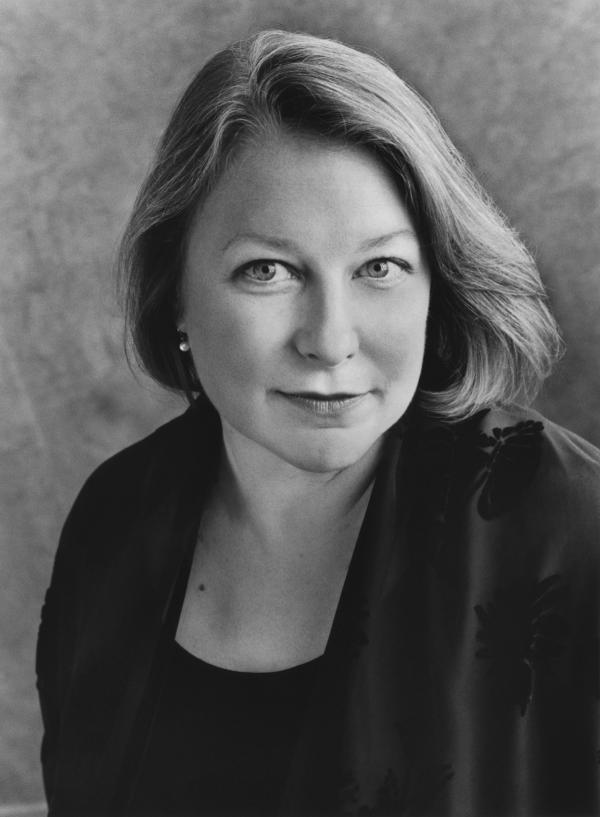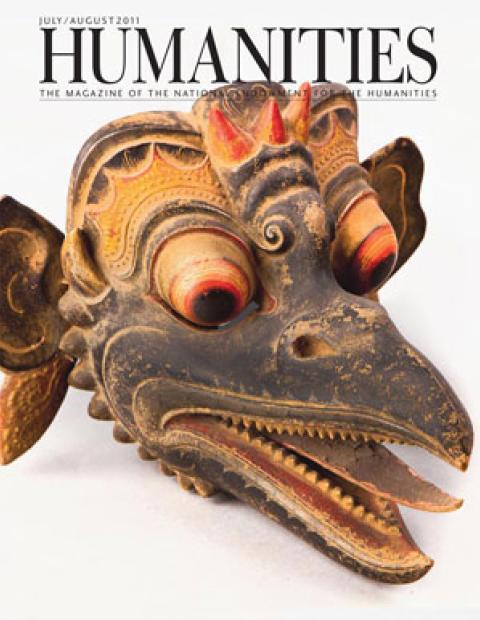As a historian of science and medicine, Deborah Harkness has traced how knowledge of the natural world has made its way from medieval universities to Renaissance courts and into Enlightenment treatises. In John Dee’s Conversations with Angels: Cabala, Alchemy and the End of Nature (2006), she showed how Elizabeth I’s adviser used magic to answer questions about the natural world. Her second book looked at the city of ideas that was The Jewel House: Elizabethan London and the Scientific Revolution (2007). Harkness has recently cast a spell on the New York Times best-seller list with A Discovery of Witches. The novel features a historian of alchemy who stumbles across an enchanted manuscript, attracting the attention of a 1,500-year-old vampire and a host of magical trouble. Harkness, a professor of history at the University of Southern California, was an NEH fellow at the Huntington Library in 2006–2007.
Sir Francis Bacon is often portrayed as the father of modern science. Your book The Jewel House: Elizabethan London and the Scientific Revolution suggests he didn’t operate in a vacuum. How so?
He was living within a thriving city and a cutthroat court culture. It would be difficult to see either as a vacuum.
What made Elizabethan London a petri dish for scientific innovation?
The same ingredients that always seem to promote new ideas: that perfect tension between competition and collaboration.
What do you regard as Bacon’s greatest
contribution?
Contributions to the science of refrigeration.
Bacon’s greatest shortcoming?
Arrogance.
Alchemy plays a large role in your work. What is the craziest recipe you’ve come across?
The craziest recipes come from sixteenth-century cookery, not alchemy. Those for animated pies, for example.
Your intrepid interviewer has done a lot of baking, but is uncertain about the nature of an animated pie. Can you elaborate?
It’s the kind that, when you cut into it, live animals come out (usually birds).
Ever tried an alchemy recipe? How did it turn out?
No. They’re a bit difficult to replicate in a controlled laboratory with pure substances, they take a long time, and I don’t have enough counter space in my kitchen.
Time to confess: ever set the chemistry lab on fire?
No. But I was not a popular lab partner in high school physics. The wave tank was not my friend.
You’ve recently branched out into fiction, writing a best-seller: A Discovery of Witches. What prompted you to try your hand at writing a novel?
I became fascinated by the contemporary interest in the same beings—ghosts, witches, demons—that my sixteenth-century research subjects believed were living among them.
How did your training as a historian help you?
Historians know lots of good stories, so I had a lot of material to choose from—especially alchemical material. I drew on those stories to create the mythology that governs the worldview of A Discovery of Witches.
What made you decide to tackle the popular vampire genre?
A walking, talking embodiment of history (and a lot of it) was too enticing to resist.
Do your vampires sparkle?
Absolutely not. They’re too busy drinking wine, collecting art, engaging in scientific research, and seeking out long-term investment opportunities.
Count Dracula or Lestat?
Lestat.
Why do you think people continue to be fascinated by the undead?
The answer to that question is as elusive and as potentially lucrative as the philosopher’s stone. Unfortunately, it’s not yet in my possession.
The heroine of your novel is a historian. Who are your favorite scholars-as-heroes?
If you mean fictional scholars, I am very fond of the theologian at the center of Laurie King’s Mary Russell mystery series, and William of Baskerville in Umberto Eco’s The Name of the Rose is also a favorite of mine—though he is maddeningly scholastic at times.
Endnote or footnote?
Footnote.
Favorite archive?
The Bodleian Library, of course.
If you could have a supernatural power, what would you chose?
Flight. No more waiting in lines at the airport? That is definitely a power worth having.



